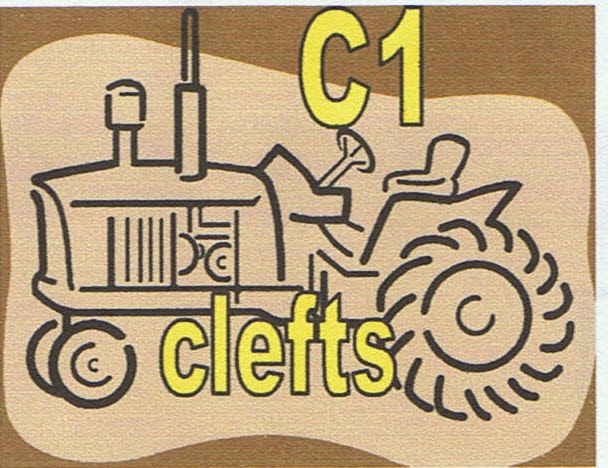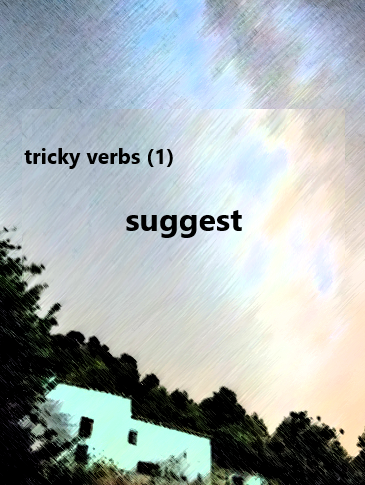SYNONYMS
Look &
See
|
verb
|
voluntary
action
|
involuntary
action
|
|
Look
|
|
|
|
Gaze
|
|
|
|
Gawk
|
|
|
|
Glance
|
|
|
|
Glare
|
|
|
|
Glower
|
|
|
|
Peek
|
|
|
|
Peep
|
|
|
|
Peer
|
|
|
|
Stare
|
|
|
|
See
|
|
|
|
Sight
|
|
|
|
Glimpse
|
|
|
|
Make out
|
|
|
|
There are more synonyms for both “look” and “see” that are not included
here
|
||
LOOK
& its synonyms
- There are several verbs that imply the action of looking (examine, scrutinize, etc.) here we consider just the manner of looking not the purpose. The list is not exhaustive.
- All or most of these verbs have other meanings. Only the meaning defined here is considered in the examples.
- Examples in red mean “wrong example” and should never be used.
look
Definition and considerations: To direct one’s eyes at
somebody or something in order to see it. Very important: it is a voluntary
action, that is, an action you do on purpose. Sometimes you look and as a
result you can see, others you look but you cannot see.
1.
I turned round to look at her but
she had gone.
2.
Although I was looking intently, I
couldn’t see the lion moving in the bushes.
3.
When she looked out of the window
she saw her cousin nearing the house.
I. BEWARE:
although they may be found as so, look
and see are not synonyms. Look is a voluntary action and
grammatically a dynamic verb (accepts continuous forms), whereas see is an involuntary action and stative
verb (doesn’t accept continuous forms). For verb see and synonyms see below.
II. NOTICE that just as “look” introduces a prepositional object with “at” (look at me)
all these synonyms of “look” do the same, if the object is mentioned. Of course
other prepositions are used depending on what the speaker wants to say.
gaze
Definition and considerations: To direct one’s eyes (look) at
somebody or something and keep them fixed on that somebody or something for
several reasons: you find the person/object/place interesting, or you like it,
or you’re simply thinking of something else.
as verb
1.
Robinson Crusoe spent hours on end
gazing out at sea thinking of his homeland.
2.
When I walked into the room, they
were gazing into each other’s eyes.
3.
All he did through the party was
gaze at John’s girlfriend in amazement.
as noun
1.
He couldn’t turn his gaze from her,
so infatuated was he.
2.
As I looked absent-mindedly out of the
window, my gaze happened to fall on a little child skateboarding across the
street.
3.
When she turned round she met this
stranger’s gaze.
Formula: gaze = “look” + fixedly because of
interest, pleasure, distraction.
gawk
Definition and considerations: To direct one’s eyes (look) at somebody
or something and for a long time (stare) stupidly or in astonishment. Compare
with “stare”.
As verb
1.
A multitude gawked at the
celebrities as they came out of the TV studio.
2.
When they were introduced he just
gawked at her and couldn’t say a word.
3.
Stop gawking like that and give a
hand with the luggage.
As noun
BEWARE: as noun it changes meaning: clumsy, stupid person.
glance
Definition and considerations: To direct one’s eyes (look) at somebody or something but
immediately turning them away as if you didn’t want to look, or didn’t want to
be caught looking.
As verb
1. Although trying to pass unnoticed, he glanced at his watch all through
the meeting.
2. Although they were at different tables, they kept on glancing at one
another all through the dinner and they were seen together on the terrace
afterwards.
3. I just glanced at the menu and knew that restaurant was not for me, so I
walked out.
As noun
1.
Strangers in the night / exchanging
glances. Love was at first sight… popular song by Frank Sinatra.
2. I gave his new book a glance before dinner, that’s all.
3. She couldn’t avoid shooting him a glance as he walked in. (idiom: shoot a glance at)
Formula: glance = “look” + quickly + look away
quickly.
glare
Definition and considerations: To direct one’s eyes (look) at
somebody/something in an angry way.
As verb
1. Although she was very angry, she didn’t shout, she just glared at him.
2. She glared at everybody in the room and left slamming the door.
3. In spite of the fit of rage he just glared at his opponent.
As noun
1. In spite of his sunglasses you could see his glare.
2. Tired of their misbehaviour the teacher gave a glare to all her students
and left the classroom.
3. She answered him with a piercing glare.
glower
Definition and considerations: To direct one’s eyes (look) at
somebody/something with dislike, anger, discontent. Glare.
As verb
1. She glowered at her sister for the comment, but didn’t say anything.
2. He glowered at his rude boss while crumpling up some of the papers.
3. When he made a pass at her, she just glowered at him and left the party.
As noun
1. When we told them why we were there, he gave us a frightening glower and
we understood we had to leave.
2. All the students feared her glower.
3. Beware. His glower frightens even the bravest.
peek
Definition and considerations: To direct one’s eyes (look) at
somebody/something furtively, for a short time and trying not to be seen
because you are not supposed to see. Usually through a hole, crevice, over
wall, etc. See “peep” below.
As verb
1. The boy peeked through the keyhole
to see what the teachers were doing.
2. Several times she had peeked at him from over the wall.
3. Now, close your eyes, children. And no peeking!
As noun
1.
She managed to take a peek at the
actors while in the dressing rooms.
2.
The museum was packed but they
managed to get a peek at the Van Gogh.
3.
From over the wall she took a peek
at the garden and ran away afraid of the old man.
peep
Definition and considerations: To direct one’s eyes (look) at
somebody/something furtively, for a short time and trying not to be seen
because you are not supposed to see. Usually through a hole, crevice, over
wall, etc. See “peek” above. It is a
variant of “peek”.
As verb
1. The boy peeped through the keyhole to see what the teachers were
doing.
2. She peeped at him from behind the bushes.
3. Before going on stage, the debut actress peeped at the audience from
behind the curtains.
As noun
1.
She managed to take a peep at
the actors while in the dressing rooms.
2.
The headmaster caught the boy taking
a peep through the keyhole.
3.
From over the wall she took a peep
at the garden and ran away afraid of the old man.
peer
Definition and considerations: To direct one’s eyes (look) at
somebody/something making an effort to see clearly.
As verb
1. He peered in the dark garden looking for his keys.
2. When she opened the door she had to peer into the dark night to see who
it was.
3. Not wearing her glasses, she peered closely at the map
As noun
BEWARE: a person who is
the same age or has
the same social position or the
same abilities as other people in a group (from Cambridge dictionary): “an equal”
stare
Definition and considerations: To direct one’s eyes (look) at
somebody/something for a long time, especially interested, frightened,
surprised.
As verb
1. Don’t stare at people. It’s not polite.
2. He stared at the lion’s every single movement wondering what he could do
to get out of it.
3. She looked straight into his eyes and managed to stare him down. (force him to look away)
As noun
1.
She has the strongest stare I’ve
ever seen. Nobody can resist her.
2.
He complained and complained but she
just gave him a blank stare.
3.
The murderer gave his victim a cold
stare before stabbing him to death.
see
Definition and considerations: Basically, to perceive with your eyes. Unlike
“look” it isn’t a voluntary action. Sometimes you want to see but you can’t no
matter how much you strain your eyes (darkness, distance, etc.).
I. BEWARE :
see is an involuntary action and
stative verb (doesn’t accept continuous forms).
You’d never say “I’m seeing the car
coming”, at the moment of speaking, but “I can see the car coming”. The very
common use “I’m seeing Anne at 5” is different for the meaning here is not
“perceive with the eyes” but “meet”, in which case it is a dynamic verb like “meet” or “look” or “run” or "eat" or "swim" etc.
II.
NOTICE that “see” (with this meaning) does not take a preposition to introduce the
object.
1.
As I was coming up the street I saw
an ambulance speeding up in the opposite direction.
2.
Wow! I’ve never seen such a
beautiful butterfly!
3.
“They are coming! I can see them
from here”, shouted the lookout. (Remember: no continuous forms)
I’m seeing him coming*
sight
Definition and considerations: to perceive with the eye (see) somebody or
something suddenly.
1.
From his post, the sentry sighted an
enemy patrol suddenly appearing from behind the hill.
2.
After many days out at sea, the
lookout sighted land.
3.
The fugitive was sighted outside the
village by a driver that passed by.
I’m sighting
land *
glimpse
Definition and considerations: to perceive with the eye (see) somebody or
something but for a very short time or incompletely.
As verb
1.
I was right across the street and I
glimpsed him as he fell from the scaffold on the third floor. (More
natural as noun: I caught/had a
glimpse of him as he fell….)
2.
From the train we glimpsed his house
at the top of the hill. (More natural as noun: … we caught/had a glimpse of his house….)
3.
The fans glimpsed their idol as she
passed by in a car. (More natural as noun: The fans caught/had a glimpse of their idol….)
I’m
glimpsing how he falls from the seventh floor *
make out
Definition and considerations: to perceive with the eye –or ears (understand)–
(see/hear/understand) somebody or something with difficulty.
1. I looked through the window but only managed to make out a tall figure in
the dark.
2.
I can make out a house or something
right at the top of the hill.
3.
It was such a pour that I could barely
make out the traffic signs.
4.
I heard them talk but I couldn’t
make out a word they said (synonym of “understand”)
I’m making
out a figure in the dark outside*
others: descry, notice, discover.




Comentarios
Publicar un comentario